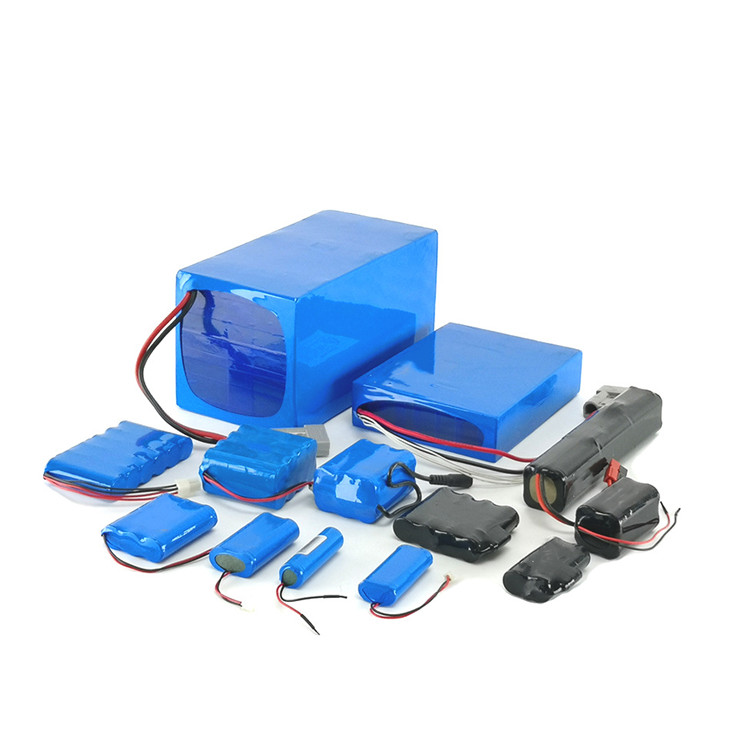Qual é melhor, bateria de íon de titanato de lítio, bateria de fosfato de ferro-lítio ou bateria de lítio ternária?
Fevereiro 5, 2024
Atualmente, new energy vehicles mainly use power lithium batteries whose cathode materials are lithium iron phosphate or ternary materials. Both have their own advantages in the fields of new energy buses and new energy passenger cars. So, which one is better compared to lithium titanate ion battery, lithium iron phosphate battery and ternary battery?
As we all know, the performance of lithium-ion batteries is mainly determined by the positive electrode, eléctrodo negativo, electrolyte and separator. The positive and negative electrode materials have an important impact on key indicators of the battery, such as capacity, densidade de energia, Ciclo da vida, segurança, rate performance, custo, etc.
Although they both use ternary as the cathode material, the lithium titanate battery breaks the traditional battery technology route of using graphene as the negative electrode and uses lithium titanate as the negative electrode material, which makes it an outlier in the eyes of its peers. But it is the characteristics of lithium titanate itself that give batteries of this material its distinctive features.
Taking the three lithium-ion batteries of lithium iron phosphate-graphene, ternary-graphene, and ternary-lithium titanate as examples, lithium titanate batteries are at a disadvantage from the perspective of energy density alone. Atualmente, the actual specific energy of lithium iron phosphate batteries is 100-120Wh/kg, and the ternary battery is 150-200Wh/kg. Among them, the nickel-cobalt-aluminum ternary battery used by TSLA reaches 252Wh/kg, while the lithium titanate ion battery It is only 90Wh/kg, which is only half that of some graphite-based negative electrode material batteries.
From a cost perspective, lithium titanate batteries have no advantages. Atualmente, the raw materials for lithium titanate batteries include titanium hydroxide and lithium hydroxide, which are more expensive than graphite anode materials. Atualmente, the cost of lithium iron phosphate and ternary batteries is 1,100 yuan/kwh-1,200 yuan/kwh, while the cost of lithium titanate ion batteries is about 2-3 times that of ternary batteries.
The energy density is twice as low and the cost is 2-3 times higher. How can lithium titanate batteries participate in the market competition?
Em primeiro lugar, considering the most important safety indicator of batteries, lithium titanate stands out.
When lithium titanate is used as an anode material, the potential platform is as high as 1.55V, which is more than 1V higher than traditional graphite anode materials. Although some energy density is lost, it also means that the battery is safer. The demand for negative electrode voltage during fast charging of the battery is relatively low, but if it is too low, the lithium-ion battery will easily precipitate very active metallic lithium. This lithium ion not only conducts electricity, but also reacts with the electrolyte, then releases heat and produces flammable gas. , causing a fire. Lithium titanate’s higher 1V voltage prevents the negative electrode voltage from reaching 0, which indirectly prevents the precipitation of lithium ions, thus ensuring the safety of the battery.
Because lithium titanate batteries can be used safely in both high and low temperature environments, it also reflects its important advantage of being able to withstand wide temperatures (especially low temperatures). Atualmente, the safe operating temperature range of lithium titanate batteries is between -50 degrees and 65 graus. Contudo, the energy of ordinary graphite negative electrode batteries begins to decay when the temperature is lower than -20 graus. At -30 graus, the charging capacity is only 14% of the total capacity cannot work properly in severe cold weather.
além do que, além do mais, because the lithium titanate battery only changes in volume by 1% even if it is overcharged, it is called a zero-strain material, which gives it an extremely long life. The service life of lithium titanate lithium-ion batteries can reach 30 anos, which is equivalent to the service life of a car, while the average life of ordinary graphite anode material batteries is only 3-4 anos. From a full life cycle perspective, the cost of lithium titanate batteries is lower.
The last advantage of lithium titanate is its strong fast charge and discharge ability and high charging rate. Atualmente, the charging rate of lithium titanate ion batteries is 10C or even 20C, while the charging rate of ordinary graphite anode materials is only 2C-4C.
Based on these technical characteristics of lithium titanate batteries, industry insiders believe that they meet the needs of new energy buses and large-scale energy storage equipment. Take buses as an example. Geralmente, the mileage of a single journey does not exceed 40 kilometers, and it takes at least a few minutes to wait for the next departure time from each terminal station. Nesse momento, the disadvantage of low energy density of lithium titanate batteries will not affect the use of buses, but will instead reflect the benefits of fast battery charging. As a public means of transportation, buses have higher requirements for battery safety and durability.
Are you looking for customized battery with individual specifications for your devices?Por favor entre em contato:sales@customizedbattery.com for further inquiry.Thanks.








 Vendas
Vendas Vendas
Vendas Sales01
Sales01
 Gerente de vendas
Gerente de vendas